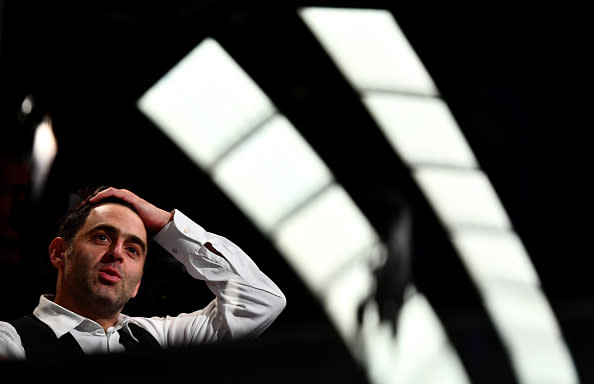Slow and steady wins the race: how business is seeing big wins from recognising mental wellbeing

Enigmatic snooker star Ronnie O’Sullivan lifted his seventh Masters title at the weekend – a record.
He’s known as The Rocket, and for good reason. O’Sullivan holds the record for the world’s fastest maximum 147 break, compiled in just 5 minutes and 20 seconds. But, as with so many geniuses, the 41-year-old is not without his demons.
He famously employs the talents of leading sports psychiatrist Steve Peters to help get his mind in the right place. O’Sullivan has talked openly about how he has struggled with the mental side of the game – playing slow opponents, the grinders, those less flashy and more methodical than he has driven him to distraction on more than one occasion.
He lost eight frames in a row against Graeme Dott in the 2006 World Championship semi-final as “I just kind of imploded and sabotaged it. I wanted to lose. I had a f*****g meltdown.”
Now, thanks in no small measure to his work with Dr Peters, O’Sullivan has won the Masters again – and has his sights on equalling Stephen Hendry’s record seven world crowns.
The story is one that illustrates how often slowing down, relaxing and taking mental stock can be the route to success.

Last week, Tesco announced it was introducing a special checkout lane, dedicated to dealing slowly and calmly with more vulnerable customers. The “relaxed lane” will allow for customers who live with Alzheimer’s, for example, to take more time over packing and paying for their groceries.
Staff are to be trained by charity experts in how better to talk to those with more special needs and will be encouraged not to rush them through the process, which can sometimes be challenging for those with memory issues.
Mental health wellbeing is an increasingly important area for health professionals.
The NHS and the Mental Health Foundation are pushing the case for “mindfulness” where becoming more aware of the present moment can help us enjoy the world around us more and understand ourselves better.
“It’s (also) easy to lose touch with the way our bodies are feeling and to end up living ‘in our heads’ – caught up in our thoughts without stopping to notice how those thoughts are driving our emotions and behaviour,” says Professor Mark Williams, former director of the Oxford Mindfulness Centre.

Such is the focus on mental health that it’s become a multi-million pound business.
Apps such as British-based Headspace (endorsed by Harry Potter star Emma Watson), Calm, and Buddhify charge users either monthly or one-off fees to provide meditation advice and programs.
In a world where everything is just a few clicks away – from securing thousands of pounds in loans to ordering the latest must-have tech gadget from the Far East – the world of business is beginning to see the merit in slowing down.
Sales training guru Kevin Davis has written a best-seller called Slow Down, Sell Faster. He argues that many salespeople are missing out on contracts but pushing potential customers through the sales process too quickly.
He tells of how, while assessing the effectiveness of a sales team of a client, each was making a fundamental mistake: “They moved through the steps of their sales process – building trust, identifying needs, presenting their solutions, going for the close – without thinking about where I was in my decision-making process. They sold too fast. They put me on their sales track, instead of joining me in my buying process.”

Mr Davis, boss of TopLine Leadership, argues that by slowing down, taking the time to ask more questions, customers will realise for themselves their urgent need and understand what solutions your company can offer.
Former business executive Adrian Savage explores a similar theme in his briefings. Time, he says, is one of our most precious commodities. Therefore, if potential customers see sellers are willing to give up that commodity to truly focus on the needs of their audience, then a successful outcome is more likely.
He blogs: “The overworked sales or customer service professional trying to deal as quickly as possible with current clients to free time to prospect for more, is forced into actions that are very likely to lose business instead of win it.”
If you were to review Lord Sugar’s Apprentices over the years, how many of the hopefuls declare that pressure means nothing to them, that they operate best when under the cosh? Yet, put them in a situation where the clock is ticking down, and they unravel.
Which brings us back to snooker. Ronnie O’Sullivan’s opponent in Sunday’s final at Alexandra Palace was Joe Perry – a solid pro for more than 25 years, this was his first major final.
He was leading the Rocket 4-1 and had a guilt-edged chance to make it 5-1 before he lost his composure – he rushed a shot, missed the pot, let O’Sullivan back into the match and watched as his opponent rattled off seven frames on the spin.
“You can’t go anywhere and it is a cauldron out there,” he said of the atmosphere. “You have to handle it. I did for the most part, but lost my way.”

 Yahoo Finance
Yahoo Finance 
